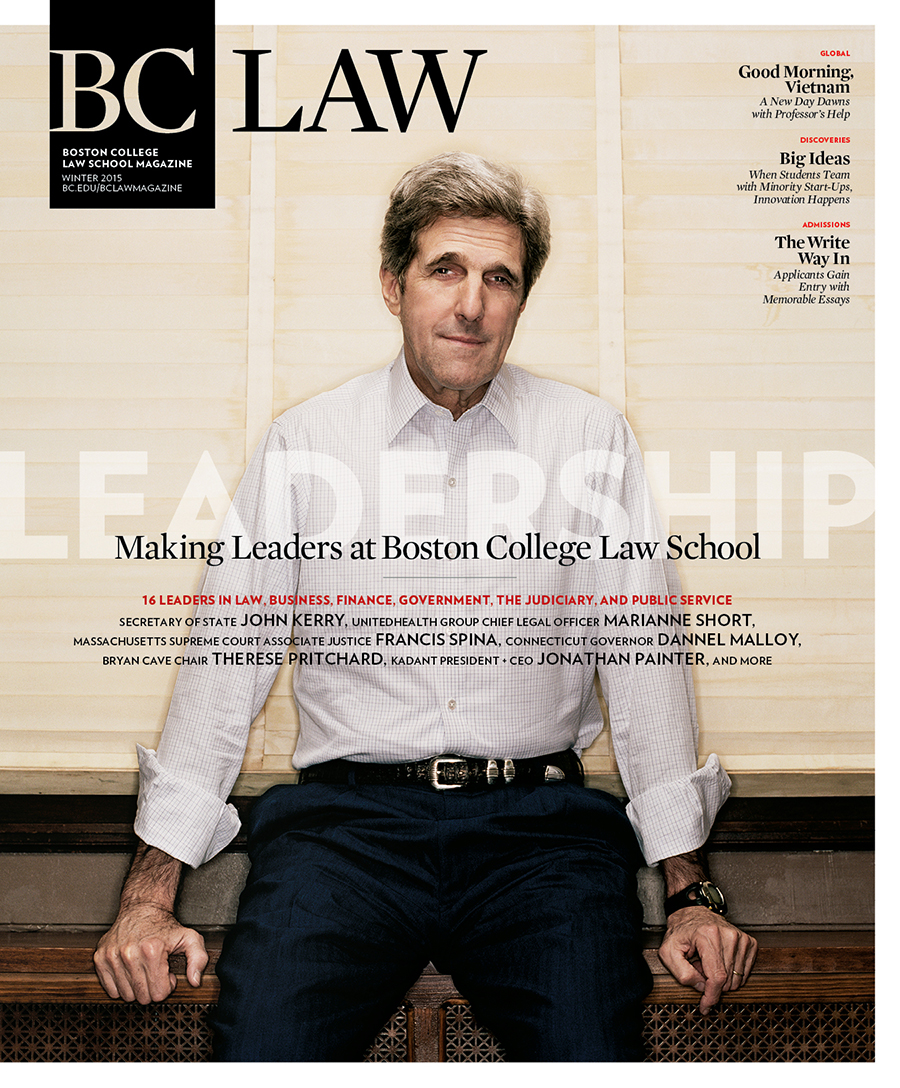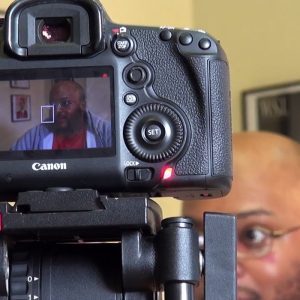Dean Vincent Rougeau opened the Boston Globe last summer and discovered something new: an MIT grad named Gilad Rosenzweig was launching a high-tech start-up incubator for entrepreneurs, not in sparkling Kendall Square, not in Boston’s bright Innovation District, but in historic but struggling Dudley Square in Roxbury, where 42 percent of children live in poverty. The incubator was called Smarter in the City. Smarter in the City was taking on its first five start-ups in an accelerator program that provides six months of free office space and mentoring to emerging entrepreneurs.
Sensing an opportunity to further BC Law’s mission to educate highly skilled lawyers and to further social justice, Rougeau tapped out an email. “It didn’t appear that they had any relationships with law schools. So I just decided to reach out to Gilad and see if he wanted to talk about what they were doing and if there might be some opportunity for us to work with them, if we could be helpful,” Rougeau says.
“[Rougeau] basically summoned me for a meeting,” Rosenzwieg says. “I was extremely excited, because we hadn’t even opened the door yet, and we’re getting the attention of universities like Boston College, and they’re interested in what we’re doing, and they’re interested in this community.” In fact, BC Law turned out to be the only law school to contact Rosenzweig. He met with Rougeau, glad to get something going, but assuming it would take several months to establish a truly productive relationship.
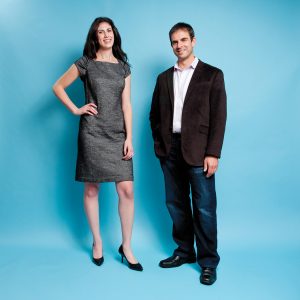
Happily, that assumption was wrong. Rougeau quickly turned to Professor Paul Tremblay, associate dean of experiential learning, and Professor Alfred Yen, director of the Emerging Enterprises and Business Law Program. Tremblay and Yen went to Smarter in the City’s offices to meet with Rosenzweig. “We just worked it out right there,” Rosenzweig says. Tremblay and Yen made one more summer visit to meet the entrepreneurs, and by the end of August, the partnership was in operation.
That there was no red tape is no accident. This fall, BC Law opened its new Center for Experiential Learning, essentially a suite of law offices in which students, supervised by clinical law professors, provide pro bono civil and criminal legal assistance to the underserved. Among the programs housed at the center is the Community Enterprise Clinic (CEC). CEC is a community development program offering legal services to low- and moderate-income businesses, entrepreneurs, and nonprofits. Thanks to the ready resources of the center and the CEC, BC Law was able to snap into place a full-fledged program for Smarter in the City right at the start of the semester.
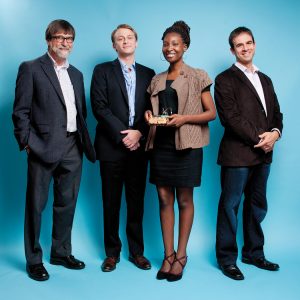
This ability to be nimble, to jump on opportunities as they arise in a fast-paced world, is part of Rougeau’s vision for the Law School. “We have to be responsive as an institution,” Rougeau says. “I think that’s what happened here.”
“There were two things that enabled us to get going very quickly,” says Yen. “One is that Paul’s clinical program has a relationship with some law firms in Boston, so if issues come up that are really outside our expertise at the Law School, then we can call on them for assistance. And the other was, it was just convenient that I turned out to be an intellectual property lawyer, because every one of the businesses at Smarter in the City has an intellectual property issue.”
Andrew Lee ’15 is one of six CEC students who counseled Smarter in the City and its five inaugural start-ups in the fall. Lee’s client is Mbadika (pronounced buh-JEE-kah), the brainchild of Netia McCray, whom Lee describes as “formal in speech, casual in demeanor,” with a passionate enthusiasm for her business. McCray started Mbadika at MIT, her alma mater. There, it went through a number of competitions and has been reinvented as a social venture with a mission to engage young people in sub-Saharan Africa and Latin America in becoming engineers, innovators, and entrepreneurs. It offers summer immersion programs for teenagers to learn the fundamentals of engineering, and is planning a series of do-it-yourself kits that will be sold by student representatives to youth in their respective countries. The kits encourage teens to experiment, redesign, and improve upon the devices they are building. Mbadika’s first kit is a solar USB charger; it converts solar power, through rechargeable batteries, into energy for computers and cell phones.

Mbadika was initially incorporated as an LLC. In conversations with McCray, Lee quickly learned that an LLC structure wasn’t suitable for the complex, nonprofit structure of the company. “Their objective is very much a social objective,” Lee explains. “They’re not in this to make money.” He had to figure out: Should they reorganize as a 501(c)(3) charitable organization? As a B corporation? Follow a hybrid model?
Lee dug deep into the legal research to come up with options for McCray, relying on Tremblay as his sounding board. Lee identified a number of choices, each with its own pros and cons. To help Lee explain them clearly to his client, Tremblay gave him a model comparison-of-entities chart that Lee customized for McCray. The chart succinctly laid out Mbadika’s options.
Mbadika’s international marketing plan raises additional legal challenges. To advise Mbadika on the import and export laws and regulations of various African countries, Lee consulted with Ilana Hurwitz, who is a visiting law professor from the University of Witwatersrand (South Africa). And to tackle Mbadika’s patent law issues, Lee worked with attorneys from some of Boston’s respected law firms, who are on call to offer pro bono assistance to the CEC.

Emailing from South Africa, where she was drumming up interest in the solar USB-charger kit, McCray reports that these legal services have been invaluable. “Addressing the legal issues of being an international social venture was slowly becoming a full-time job for my team and myself as we attempted to understand and follow legal frameworks. Considering we are a start-up with a social mission, if we spend time not focused on Mbadika, we are decreasing our social impact on aspiring young innovators and entrepreneurs around the world,” she writes. “Mr. Lee may not realize the scale of his assistance to Mbadika, but the simple fact that I no longer lie awake at night concerned that Mbadika could be dissolved because we didn’t cross a ‘t’ or dot a specific ‘i’ has allowed my team and me to do what we do best: foster the next generation of young innovators and entrepreneurs.”
Another Smarter in the City business, equally community-minded but with a more local focus (at least for now), is the for-profit KillerBoomBox Media Group. A digital media content-creation company, KillerBoomBox covers the cultural scene of urban young people, and generates events like monthly parties and concerts. It’s co-founded by Greg Valentino Ball, a big guy with a big vision and a head full of righteous dreadlocks cascading well past his shoulders.
“I am super-passionate about the idea of telling great stories and really documenting culture. But what’s also piqued my interest and gotten me excited as we’ve gone down this business path is the idea of creating jobs and having people have their first opportunity with us,” Ball says. “There’s no reason for a kid who’s grown up in Dorchester who’s passionate about music and culture to feel like he needs to leave his home town. I want KillerBoomBox to be part of retaining some of that talent.”
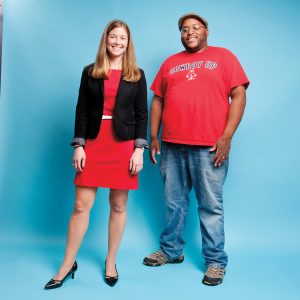
Fun and intelligent, scrappy and slick, KillerBoomBox delivers everything from spoiler-free film reviews (a columnist rates the film Dear White People “a solid double sliding into the plate beating a close throw from the outfield”) to video interviews with rappers (Big K.R.I.T. reveals how studying the cello and playing in the band “helped a lot just sonically in understanding dynamics”) to provocative opinion pieces (under the heading “Pulpit”).
To support all this energy and smooth the way to the future, Jonathan Atwater ’15 has been helping the owners of KillerBoomBox to reach formal agreements on the company’s legal and organizational structure. “Each one of the founders puts in different types of work and different amounts of time, and so we’ve been really working with them on how exactly they want to divide up ownership of the company, and how much equity each person is going to put into it,” Atwater says. He’s learning techniques to represent the entire company while going primarily through Ball. “[Professor Tremblay] has been giving me different strategies for making sure that all voices are heard, such as putting them all in an email chain, asking pointed questions to each particular founder, things like that,” Atwater says.
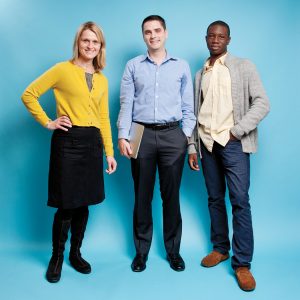
Tremblay, who has been teaching the CEC with his former student Kendra Chencus ’97, says his students are shoring up their knowledge of substantive law by applying it to real-world situations. More importantly, he says, they are learning the art of working with clients. “I want them to learn how lawyers use their knowledge of substantive law in creative and practical ways with clients, how they understand what’s important to the client, how they communicate this to the client, and how they collaborate with the client to understand what we can do to make the business work,” he says. “I also want them to develop a sense of themselves as lawyers, their own professional identity about how they want to present what’s important to them, their sense of integrity, their sense of confidence.” Further, he wants them to appreciate a community they might not ordinarily encounter. “I love the fact that our students are visiting Dudley Square,” he says, “just understanding that there are neighborhoods of Boston that are underserved and that have such great potential.”
The diversity of Smarter in the City’s cohort of businesses, and its sophisticated approach to shepherding them, ups the wattage on what BC Law students are learning. The entrepreneurs must hone their business concepts, identify and meet milestones, conduct market research, and work out a business strategy. They also make important connections with the marketing professionals, investors, bankers, and city and state officials who visit Smarter in the City regularly. Besides Mbadika and KillerBoomBox, this first group of companies includes PracticeGigs, founded by Tony Oloko, which enables aspiring athletes to improve their game by connecting with their more-skilled counterparts; Post Game Fashion, founded by Amanda Barros and her brother Paul, which helps consumers emulate the style trends set by their favorite athletes; and HeadThought, founded by Keith Donaldson, which enables journalists, politicians, and researchers to receive video feedback on issues of the day.
To recruit these folks, Smarter in the City cast a wide net to attract and interview applicants. They were selected based first on their strengths as individuals and teams, then on the products or services they were offering. More than half of the chosen entrepreneurs hail from Boston’s poorer neighborhoods of Roxbury, Dorchester, and Mattapan, and all are from minority backgrounds. By operating in Roxbury’s Dudley Square, Rosenzweig aims to bring high-tech enterprises to this gritty but important cultural center for Boston’s African-American community and communities of color.
Rosenzweig says the companies respect the fact that the law students are learning from them.
Laura Gallo ’15, who is providing tax, contract, and corporate advice to Smarter in the City itself, appreciates gaining experience with a nonprofit. “I think that’s particularly rewarding, working with Gilad, with an organization with such a strong and good mission and that wants to do good in the community,” she says.
That message, Dean Rougeau emphasizes, is coming to law students in a refreshing, particular way. “Smarter in the City is a more innovative way to think about who is not able to get the access to legal services they need, and how that lack of access starts to create this cycle of exclusion—exclusion from new opportunities in the economy, exclusion from opportunities to earn income,” he says.
“Having BC in Roxbury is going to be a really big thing for us and for Roxbury,” he says. “I’m hoping that this enlightens the students to the idea that, with their law degrees, they can do things that maybe aren’t on the traditional pathways, but are still very exciting and still present wonderful opportunities for their professional lives.” As the CEC chooses next semester’s crop of law students, and Smarter in the City picks its second-ever cohort of entrepreneurs, Rougeau sees a living manifestation of the Boston College mission to prepare men and women for others.
Contributing writer Jeri Zeder can be reached at jzbclaw@rede.zpato.net.


